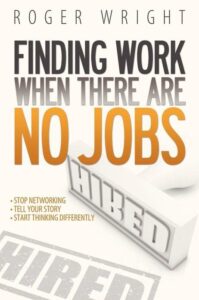BOOKS
I have been writing since I could hold a pencil. Along the way I have been a bartender, truck driver, bookstore clerk, ghost writer, Special Education teacher, counselor, and training and leadership development consultant for businesses, faith-based organizations, government, and non-profit groups.
As I work on my fourth book, I invite you to read any or all of these three:
 |
 |
 |
| Chicago Street Corner Stories | Finding Work When There Are No Jobs |
I Am Your Neighbor Voices from a Chicago Food Pantry |
| Christmas 2021 | February 2013 | September 2012 |
Review by Jeremiah Horrigan:
I’ve only visited Chicago long enough to eat a scrumptious hot dog at O’Hare Airport before nearly missing my plane to New York maybe a decade ago. But Chicago, dubbed “The Second City” by the great A.J. Lieblin, has always fascinated me, though not enough to risk its frigid winters, sultry summers, or storm-tossed political doings. My interest in Chicago is bred in soulful songs like Lou Rawls’s “Dead End Street,” in movies like “The Untouchables,” and works of a a parade of great authors I’ve discovered through my friend, Roger Wright.
Roger calls himself “Chicago Guy,” as well he should. His essays in various sites such as Huff Post and the late, lamented OpenSalon opened my eyes to Chicago’s riotously talented panoply of literary giants. He accomplishes this feat – overcoming my bred-in-the-bone New York snobbery – by doing more than recalling the greatness of writers like Studs Terkel, Nelson Algren, and dozens of others known and unknown, all of them tough-talking smart and above all empathetic men and women who loved and lived in the Windy City. The thing is, Roger doesn’t merely sit back and tell you these guys were great and deserve to be remembered, he inhabits his subjects, gives you a taste of what these writers were like and why. Best of all, he does so without anger or resentment. He’s a generous soul, and you can see it in his stories. And, as it happens, he recognizes and extols the generosity of spirit that his favorites demonstrate in their writings.
All of which is to say that if you have the least bit of interest in great writing, not to mention the Chicago’s historic role in shaping American culture, you don’t need to wait for weeks for Roger’s essays to appear. He’s written two collections of his essays that you’ll be able to gobble us at your leisure. I strongly urge you to get his books and see what I mean. There’s not enough great, thoughtful, and enticing writing going around these days, but Roger’s flavorsome stories are the exception.